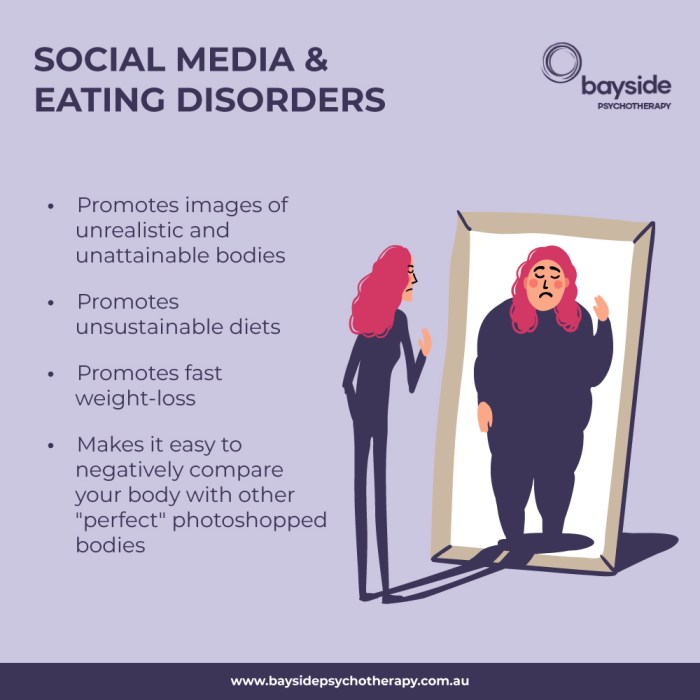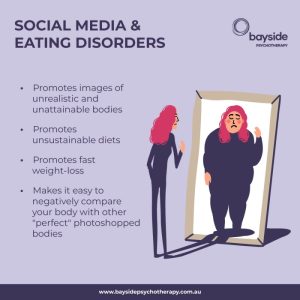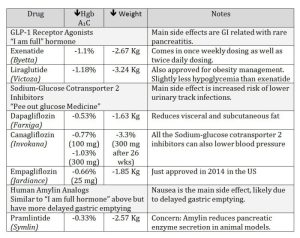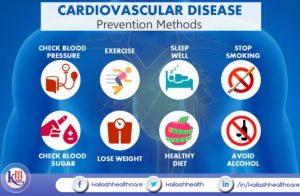
Dive into the murky waters of social media’s impact on eating disorders, where perceptions of beauty and body image are distorted by likes and filters. Brace yourself for a revealing journey through the digital looking glass.
Let’s uncover how social media feeds into the dangerous spiral of eating disorders, shedding light on the role of influencers, celebrities, and research findings in this complex web of online influence.
Impact of social media on eating disorders
Social media plays a significant role in shaping body image perceptions and can have a detrimental impact on individuals struggling with eating disorders. The constant exposure to idealized and often unrealistic body standards portrayed on social media platforms can exacerbate feelings of inadequacy and contribute to the development or worsening of eating disorders.
How social media can influence body image perceptions
- Social media platforms are flooded with images of edited and filtered bodies, creating an unrealistic standard of beauty that many individuals feel pressured to achieve.
- Comparison with influencers and celebrities on social media can lead to feelings of insecurity and dissatisfaction with one’s own body.
- The popularity of diet culture and fitness trends on social media can promote unhealthy eating habits and obsessive behaviors related to food and exercise.
Examples of social media platforms that may contribute to the development of eating disorders
- Instagram, with its focus on visual content, is often associated with promoting unrealistic beauty standards and triggering feelings of body dissatisfaction.
- TikTok’s algorithm can expose users to content related to dieting, weight loss, and body transformations, potentially reinforcing harmful behaviors.
- YouTube is home to a vast amount of content promoting extreme dieting and exercise routines, which can negatively impact viewers’ relationships with food and body image.
The role of influencers and celebrities on social media in shaping ideals related to body image and beauty standards
- Influencers and celebrities often present curated images of their lives and bodies, creating an unattainable standard that followers may strive to emulate.
- Endorsements of detox teas, waist trainers, and other questionable products by influencers can promote harmful weight loss practices and contribute to disordered eating behaviors.
- Celebrities with large followings have the power to influence societal beauty standards and impact how individuals perceive their own bodies.
Analyze studies or research findings that have explored the relationship between social media use and eating disorders
- A study published in the Journal of Eating Disorders found that higher social media use was significantly associated with greater eating disorder psychopathology among college students.
- Research conducted by the National Eating Disorders Association revealed that exposure to images of thin and idealized bodies on social media can increase body dissatisfaction and drive disordered eating behaviors.
- Studies have shown that individuals who spend more time on social media platforms that focus on appearance and weight are more likely to experience negative body image and engage in restrictive eating habits.
Cosmetic Surgery
Cosmetic surgery is a popular option for individuals looking to alter their physical appearance to align with societal beauty standards. The rise of social media has played a significant role in the normalization of cosmetic procedures, influencing many to undergo such surgeries.
Common Types of Cosmetic Surgeries
- Rhinoplasty (nose job): A procedure to reshape or resize the nose.
- Breast Augmentation: Involves enhancing the size and shape of the breasts.
- Liposuction: Removes excess fat from various parts of the body.
- Botox Injections: Used to reduce wrinkles and fine lines on the face.
Impact of Social Media on Cosmetic Procedures
Social media platforms often showcase idealized images of beauty, leading individuals to compare themselves to unrealistic standards. Influencers and celebrities openly sharing their cosmetic surgery experiences can further perpetuate the idea that such procedures are commonplace and easily attainable.
Influencing Individuals to Undergo Cosmetic Surgeries
- Social media platforms create a culture of constant comparison, making individuals feel inadequate in their own skin.
- Posts promoting cosmetic procedures as a solution to insecurities can influence vulnerable individuals to seek out these surgeries.
- Celebrities endorsing specific procedures can sway their followers to consider similar treatments to achieve a desired look.
Celebrities and Influencers Sharing Cosmetic Surgery Experiences
- Kylie Jenner: The reality TV star and beauty mogul has openly discussed her lip fillers and other cosmetic enhancements on social media.
- Chrissy Teigen: The model and author has shared her experiences with procedures like breast implants removal and botox injections.
- Cardi B: The rapper has been candid about her cosmetic surgeries, including breast augmentation and liposuction.
Foot Health
Social media has a significant impact on how we perceive beauty standards, even extending to our feet. The constant exposure to images of idealized foot appearance on platforms like Instagram and TikTok can lead to unrealistic expectations and insecurities related to our own feet.
Ideal Foot Appearance
With the rise of trends like “shoe selfies” and “feet aesthetics” on social media, there is a growing emphasis on the appearance of feet. This can create pressure for individuals to have a certain look or style of feet, which may not always be healthy or attainable.
- Individuals may feel compelled to undergo cosmetic procedures such as toe-shortening or foot reshaping to achieve the desired aesthetic, without considering the potential risks and implications for their foot health.
- Comparison to influencers or celebrities with supposedly perfect feet can lead to dissatisfaction with one’s own feet, contributing to body image issues and low self-esteem.
Foot Health Concerns
The obsession with foot appearance promoted by social media trends can have negative consequences on foot health. Here are some common foot-related issues among individuals influenced by unrealistic beauty standards:
- Increased risk of developing conditions like bunions, hammertoes, or ingrown toenails due to wearing ill-fitting shoes in pursuit of fashionable trends.
- Overuse injuries from engaging in extreme activities like high-heel walking challenges or barefoot running, inspired by viral social media challenges.
Maintaining Good Foot Health
Despite the pressures of social media, it is essential to prioritize foot health over aesthetics. Here are some tips to ensure your feet stay healthy:
- Choose footwear that provides proper support and fits well, avoiding narrow or pointed shoes that can squeeze toes and lead to deformities.
- Practice good hygiene by keeping your feet clean and dry, regularly trimming toenails, and moisturizing to prevent dry skin or cracking.
- Engage in regular foot exercises and stretches to strengthen muscles and improve flexibility, reducing the risk of injuries or pain.
Heart Disease
Social media has become an integral part of our daily lives, impacting various aspects of our health, including heart health. The indirect link between social media, stress, and heart disease is a significant concern in today’s digital age. The constant exposure to curated and often unrealistic images on social media platforms can lead to feelings of inadequacy, comparison, and ultimately, stress, which can have detrimental effects on the heart.
Impact on Sedentary Lifestyles and Poor Dietary Choices
- Social media usage patterns can contribute to sedentary lifestyles as individuals spend prolonged periods sitting and scrolling through feeds, rather than engaging in physical activity.
- Moreover, the constant bombardment of images promoting unhealthy food choices, fad diets, and unrealistic body standards can influence individuals to make poor dietary decisions, leading to an increased risk of heart disease.
Association with Increased Risk of Heart Disease
- Studies and reports have investigated the association between social media addiction and an increased risk of heart disease.
- Research suggests that excessive social media use can lead to poor mental health outcomes, such as anxiety and depression, which are known risk factors for heart disease.
- The constant exposure to negative news, cyberbullying, and online harassment on social media platforms can further exacerbate stress levels, contributing to cardiovascular issues.
Strategies for Balancing Social Media Use with Heart-Healthy Habits
- Limit screen time and set boundaries for social media use to reduce exposure to stress-inducing content.
- Engage in regular physical activity and prioritize a balanced diet to counteract the sedentary behaviors and poor dietary choices influenced by social media.
- Practice mindfulness, meditation, or other stress-relieving techniques to manage the psychological impact of social media on heart health.
- Seek support from friends, family, or mental health professionals if social media use is negatively affecting your well-being and heart health.
Health Diabetes
Social media platforms play a significant role in shaping perceptions of diet and lifestyle choices related to diabetes. From influencer endorsements to trending diets, the online world can heavily influence individuals’ decisions regarding their health.
Online Communities for Diabetes Support
Online communities provide a valuable space for individuals living with diabetes to connect, share experiences, and access crucial information and support. These platforms offer a sense of community, understanding, and empowerment for those navigating the challenges of managing diabetes.
Impact of Social Media Marketing on Diabetes Risk
Social media marketing can sometimes promote unhealthy food choices that contribute to the risk of developing diabetes. Through targeted advertisements and influencer collaborations, platforms may inadvertently encourage consumption of sugary or processed foods that can worsen diabetes outcomes.
Social Media Campaigns for Diabetes Awareness
Several social media campaigns have been launched to raise awareness about diabetes prevention and management. For example, campaigns like #CycleforDiabetes or #DiabetesAwarenessMonth aim to educate the public, reduce stigma, and promote healthy lifestyle choices to prevent diabetes.
Eating Disorders

Eating disorders are serious mental health conditions characterized by unhealthy relationships with food, body image, and weight. They can affect individuals of all ages, genders, and backgrounds. Common types of eating disorders include:
Types of Eating Disorders and Symptoms
- Anorexia Nervosa: Individuals with anorexia nervosa have an intense fear of gaining weight and often restrict their food intake significantly. Symptoms may include extreme weight loss, obsession with food and calories, and distorted body image.
- Bulimia Nervosa: People with bulimia nervosa engage in binge-eating episodes followed by purging behaviors such as vomiting, excessive exercise, or fasting. Symptoms may include frequent fluctuations in weight, dental issues, and secrecy around eating habits.
- Binge Eating Disorder: Those with binge eating disorder experience recurrent episodes of consuming large amounts of food in a short period, often feeling a lack of control during these episodes. Symptoms may include eating in private due to embarrassment, guilt, or shame.
Impact of Social Media on Eating Disorders
Social media platforms can play a significant role in triggering or exacerbating eating disorder behaviors among vulnerable individuals. The constant exposure to idealized images of thinness, diet culture, and food restriction can lead to feelings of inadequacy, comparison, and pressure to attain unrealistic body standards.
Portrayal of Food, Dieting, and Thinness on Social Media
- The portrayal of restrictive diets, “clean eating,” and excessive exercise on social media can normalize unhealthy behaviors and contribute to the development of eating disorders.
- Images promoting thinness as the ideal body type can lead individuals to engage in dangerous weight loss practices to fit these standards.
Resources and Support Networks for Eating Disorders
For individuals struggling with eating disorders influenced by social media, it is important to seek help from professional resources and support networks. Organizations like the National Eating Disorders Association (NEDA) provide valuable information, helplines, and treatment options for those in need of assistance.
Closure

As we wrap up our exploration, remember that behind every perfectly curated post lies a hidden struggle. Social media’s allure may seem harmless, but its effects on eating disorders are far-reaching and profound. Stay vigilant, stay informed, and remember that real beauty transcends the confines of a screen.
FAQ Guide
Can social media really trigger eating disorders?
Yes, social media plays a significant role in influencing body image ideals and can trigger or exacerbate eating disorder behaviors in vulnerable individuals.
How do influencers contribute to eating disorders through social media?
Influencers often promote unrealistic beauty standards and diets, which can distort perceptions of body image and lead to disordered eating habits.
Are there support networks available for those affected by eating disorders due to social media?
Yes, there are various online resources and support groups specifically designed to help individuals struggling with eating disorders influenced by social media.





